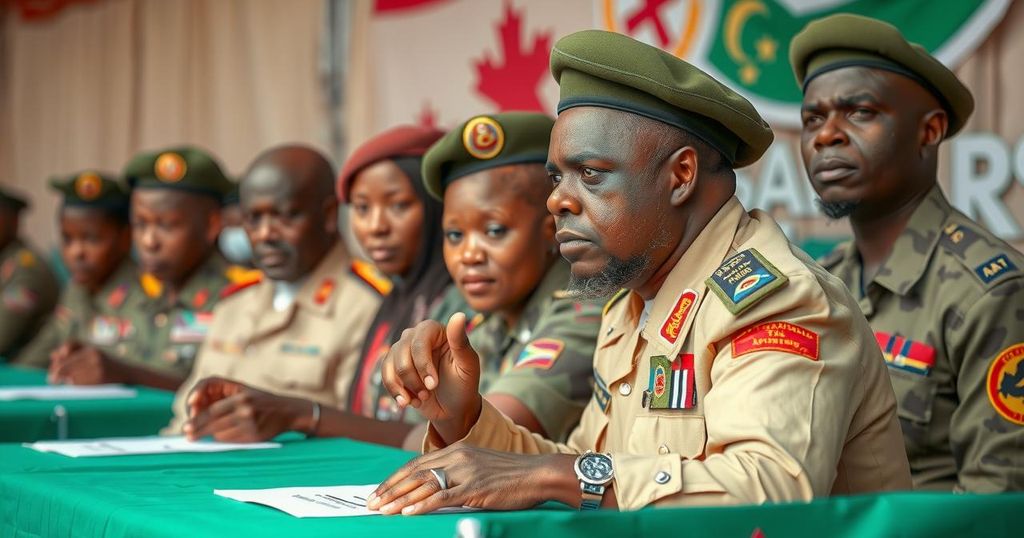Chad Votes in General Election Amidst Low Turnout and Opposition Boycott
Chad conducted a general election after three years of military rule, but turnout was low at 38% due to an opposition boycott. While the government views the election as a move towards democracy, many citizens expressed skepticism about its legitimacy. Controversies surrounding ballot security and the historical context amplify the current political turmoil.
Chad held a general election on Sunday, a pivotal move according to the government toward transitioning from military rule. Voter turnout was reported at a mere 38 percent, a result attributed to calls for a boycott by opposition parties. These groups maintain that the election’s outcomes were predetermined, leading to significant apathy among voters. Opposition leader Succes Masra noted that the electorate largely stayed home following their appeal against participating.
In contrast, President Mahamat Idriss Deby Itno, who ascended to power through military means in 2021, encouraged registration and participation, labeling the day as historic. Despite his appeals, many citizens expressed skepticism surrounding the legitimacy of the electoral process, pointing to systemic issues and a lack of genuine competition. For instance, Hervé Natouingan, a local construction worker turned taxi driver, dismissed the voting effort as futile, stating that “there is no real voting in Chad.”
Concerns were also raised regarding logistical issues, with reports of ballot discrepancies emerging from opposition parties. On the ground, soldiers and other categories of voters took part before the main voting day due to previous obligations. As the election unfolded, community representatives emphasized the pressing local issues, such as climate impact on livelihoods, showcasing the dire need for effective governance.
This election occurs amidst numerous challenges, including regional security threats from Boko Haram and complex relations with former colonial power France. The ruling government has portrayed this electoral event as a critical point in the nation’s journey toward democracy, striving to regain public trust in governance following decades of authoritarian rule under Deby’s father.
Chad has been governed by a military regime since 2021, following the death of long-time ruler Idriss Deby. The political landscape is marred by discontent among the populace, with opposition parties denouncing fairness in electoral practices and calling for boycotts. The current administration seeks to transition to a democratic framework through this election. Challenges such as socioeconomic issues, conflicts exacerbated by climate change, and security threats from extremist groups intensify the pressures on the electoral process. This context sets the stage for understanding the public’s reluctance to participate and the underlying tensions within Chad’s political dynamics.
The recent general election in Chad, intended as a step towards democracy, faced significant challenges marked by low voter turnout and widespread opposition boycotts. The calls for non-participation stem from deep-rooted skepticism regarding electoral integrity and the legitimacy of the ruling government. Observations from within the country reveal that citizens are yearning for meaningful change and are deeply concerned about ongoing issues, including security and socio-economic stability. Moving forward, the government’s ability to address these concerns will be crucial in rebuilding public trust and achieving a successful transition to democracy.
Original Source: www.khq.com




Post Comment